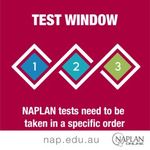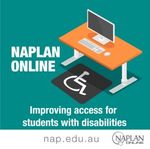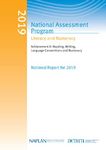FEBRUARY FOR PRINCIPALS - Australian Council of State ...
←
→
Page content transcription
If your browser does not render page correctly, please read the page content below
OFFICIAL FEBRUARY FOR PRINCIPALS 2019 NAPLAN NATIONAL REPORT RELEASED On 25 February ACARA released the 2019 NAPLAN National Report. The report confirms the initial findings of the preliminary information published in August 2019, but provides further information including comparisons of performance by gender, Indigenous status, language background other than English, parental occupation, parental education and school location. ACARA CEO, David de Carvalho, said “The NAPLAN results for 2019 show that since 2019 – the first year of NAPLAN – there have been statistically significant gains in a number of domains and year levels, particularly at the primary school level.” NAP SCIENCE LITERACY REPORT RELEASED February 27 saw acara release the 2018 NAP – Science Literacy report. The results show that although the change has not been significant, there are signs Australian students’ understanding of scientific concepts is on the up, with Year 6 students achieving their best results since the sample assessments began in 2003. The NAP – Science Literacy assessments, held in October and November 2018, show that at the national level, 58 per cent of Year 6 students attained the proficient standard. This is the highest percentage of students to achieve the proficient standard since the assessments were introduced. (In 2015, 55 per cent of students reached the standard; in 2012, it was 51 per cent.) Read ACARA’s media release. RESOURCES TO HELP EDUCATORS TEACH TRADITIONAL SCIENCE IN THE CLASSROOM The Australian Curriculum website has recently been updated with teacher background information to support teachers from Foundation to Year 10 in incorporating Aboriginal and Torres Strait Islander knowledge into their science lessons. Almost 100 elaborations were published in 2018 and the full suite of teacher background information details the cultural and historical significance of each topic and how it connects to the core science curriculum content. ACARA Curriculum Specialist Joe Sambono spoke to National Indigenous Times about the resources, which were developed in consultation with ACARA’s Aboriginal and Torres Strait Islander Advisory Group and in partnership with Indigenous communities. “Historically, a teacher might give a student a saucer and an ice cube and say, ‘Describe what occurs as the ice cube warms up’, Mr Sambono said. “Instead of that, we’re saying we could investigate an underground oven, how does a traditional underground oven work … we can utilise the exact same science knowledge.” Plans are underway for South Australia to roll out the Australian Curriculum’s science elaborations across the state, with Science and STEM coordinator at Woodville High School, Sam Tuffnell, saying that learning about Indigenous cultures is an educational right of all students. “Aboriginal and Torres Strait Islander peoples are the oldest, continuous living culture in the world, and it would be negligent of us as a scientific community to not embed their knowledge in mainstream classroom learning.” You can read more about the elaborations on the Australian Curriculum website, including how to access the elaborations. COMPUTATIONAL THINKING IN PRACTICE
OFFICIAL Computational thinking is a key idea of the Australian Curriculum: Technologies. It includes: • Organising information logically • Breaking down problems into parts • Understanding patterns and models • Creating algorithms Computational thinking is an instrumental approach to problem solving that can be applied to all areas of learning. Many everyday activities, like following a recipe or getting dressed involve computational thinking. Teachers of students in the early years (F–2) can make use of resource cards developed by ACARA’s Digital Technologies in focus project to provide opportunities for students to use and develop their computational thinking skills. HELPING TEACHERS KEEP YOUNG PEOPLE SAFE ONLINE In consultation with eSafety Commissioner, ACARA has developed a new online safety curriculum connection – a resource that helps teachers identify where in the Australian Curriculum that online safety can be incorporated across year levels, learning areas, subjects and general capabilities. This was in response to a recommendation from the Royal Commission into Institutional Responses to Child Sexual Abuse for nationally consistent curriculum for online safety education. The online safety curriculum connection focuses on five interrelated dimensions: • online safety values, rights and responsibilities • wellbeing • respectful relationships • digital media literacy • informed and safe use of information and devices. The online safety curriculum connection is now available on the Australian Curriculum website. MONITORING THE EFFECTIVENESS OF THE FOUNDATION – YEAR 10 AUSTRALIAN CURRICULUM (AC) Each year, ACARA summarises stakeholder feedback on the implementation of the Australian Curriculum in a report titled Monitoring the Effectiveness of the Foundation – Year 10 Australian Curriculum. It reflects and annual process of collecting and synthesising future curriculum renewal. The 2018-19 report was recently published. The report contains feedback collected between 1 July 2018 and 30 June 2019, from departmental, school and curriculum authorities in all Australian states and territories, and from ACARA’s advisory and reference groups. The feedback received suggests a desire for refinement of the AC within its existing structure and decision rather than wide-ranging revision. The report will contribute to informing ACARA’s advice to education ministers on the scope of refinement of the AC by mid-2020. NAPLAN ONLINE SOCIAL MEDIA ASSETS FOR SCHOOLS ACARA have developed a series of social media assets for use by schools in their communications regarding NAPLAN Online. Graphics are accompanied by explanatory text and links to the NAP website to explain various aspects of NAPLAN Online to parents and other stakeholders.
OFFICIAL You can find the assets as an attachment to this document. STAY UP TO DATE WITH ACARA NEWS Subscribe to the ACARA Update newsletter to receive monthly updates straight to your inbox.
OFFICIAL
ATTACHMENT ONE: NAPLAN ONLINE SOCIAL MEDIA ASSETS
All schools are moving NAPLAN is a point-in-time assessment
to NAPLAN Online by 2021 as the online that allows parents to see how their child
format will change NAPLAN for the better. is progressing in literacy and numeracy.
Find out all about NAPLAN’s move online: nap.edu.au/naplan/parent-carer-support
nap.edu.au/online-assessment
The demo tests are a fun way for students to One of the main benefits of NAPLAN Online
try out the complete range of question is tailored (or adaptive) testing, in which
formats available in NAPLAN the test presents questions of higher or lower
Online. nap.edu.au/online- complexity depending on a
assessment/public-demonstration-site student’s performance, resulting in a more
engaging assessment and more precise
results: www.youtube.com/watch?v=oGFseJ
AM3EwOFFICIAL In general, research shows parents are Teachers and schools, in consultation with accepting of the move to NAPLAN online, students and their parents/carers, are in as a natural progression and that the the best position to determine the needs of online format will improve NAPLAN individual students. https://nap.edu.au/online- and result in a more engaging experience assessment/accessibility for students. Read the Colmar Brunton research findings: nap.edu.au/online-assessment The test window for NAPLAN Online is nine days and tests need to be taken in a specific order. https://www.nap.edu.au/online- assessment/test-window
You can also read


























































